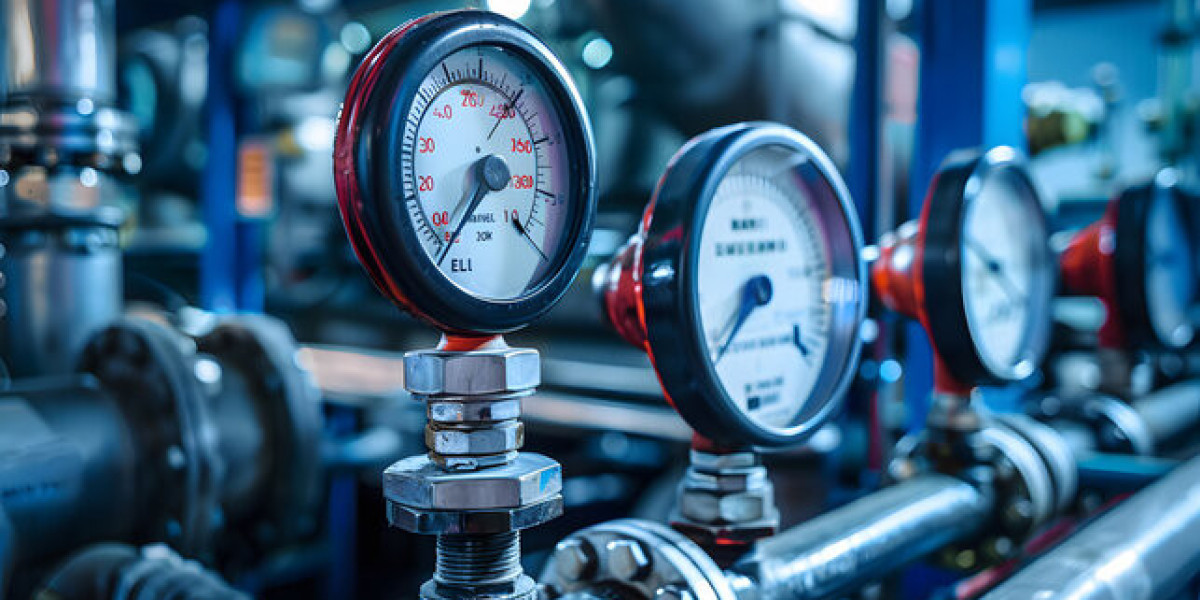Flow meters have become indispensable tools in various industries, measuring the movement of liquids and gases with high accuracy. As industrial processes become more complex and demand greater efficiency, the flow meter market is seeing remarkable growth, driven by technological advancements and the need for optimized fluid management.
Overview of Market Growth
In 2024, the global flow meter market is on track to hit approximately USD 9.1 billion, with projections indicating it could grow to USD 12.6 billion by 2029, expanding at a 6.7% compound annual growth rate (CAGR). This growth is largely fueled by industries such as oil & gas, water treatment, chemical processing, and power generation, all of which require precise fluid monitoring for safety, efficiency, and compliance.
Importance Across Industries
Flow meters play a critical role across industries by ensuring accurate measurement of liquid and gas flow. In sectors like oil & gas, the reliability of these meters impacts production quality and safety, preventing costly mishaps such as leaks or inefficient energy use. In the water and wastewater management sectors, flow meters contribute to resource conservation, ensuring systems are running smoothly while complying with environmental regulations.
In industries that are highly regulated, such as pharmaceuticals and food & beverage, the precision provided by flow meters is paramount for maintaining quality control. Flow meters are also key in the renewable energy sector, where they help in monitoring biofuel production and improving energy efficiency.
Technological Advancements and IIoT Integration
The rapid adoption of advanced technologies is reshaping the flow meter market. The advent of digital flow meters, integrated with Industrial Internet of Things (IIoT) technology, has revolutionized how industries monitor and optimize their systems. These devices offer real-time data, predictive analytics, and enhanced diagnostic features. By harnessing IIoT, flow meters provide continuous insights, allowing operators to proactively address potential issues, reduce downtime, and increase operational efficiency.
Furthermore, the growing sophistication of flow meter technologies is reflected in the diversification of product types. Flow meters like Coriolis, ultrasonic, magnetic, and vortex meters are all tailored for specific industrial requirements. Coriolis meters, for example, are known for their accuracy in mass flow measurement, making them ideal for industries such as oil & gas. Meanwhile, ultrasonic and electromagnetic flow meters are extensively used in sectors that deal with conductive fluids, such as wastewater treatment.
Leading Players and Competitive Strategies
Top companies like Emerson Electric Co. and Siemens AG are pushing the boundaries of innovation in the flow meter space. Their products are designed to meet the evolving demands of multiple industries. Siemens AG, for instance, has developed ultrasonic and electromagnetic flow meters that are highly efficient in various industrial applications, while Emerson Electric is recognized for its state-of-the-art Coriolis and magnetic flow meters, which are widely used in hazardous environments.
These key players are not only focused on product innovation but are also strategically expanding their market presence through acquisitions and collaborations. Such strategies enable them to diversify their product offerings and expand into new markets, particularly in regions with growing industrial infrastructure, such as Asia-Pacific and the Middle East.
Future Trends in the Flow Meter Market
Looking ahead, the flow meter market is expected to continue evolving in response to both technological and regulatory pressures. Sustainability is becoming a crucial focus across industries, with governments worldwide implementing stricter regulations around energy efficiency and environmental conservation. Flow meters will play a vital role in helping industries meet these regulatory requirements by providing accurate measurements of water, air, and energy usage, thereby minimizing waste and emissions.
The push towards smart manufacturing and the implementation of Industry 4.0 will further accelerate the demand for advanced flow meters. As more industries transition to fully automated and interconnected production systems, the ability to remotely monitor and control processes via IIoT-enabled devices will be essential. This integration will lead to smarter, more sustainable operations, with flow meters at the heart of process optimization.
Download PDF Brochure :
Flow meters are becoming increasingly important in driving operational efficiency and ensuring industrial safety across multiple sectors. The market’s growth trajectory, supported by ongoing technological advancements and the increasing need for precision, positions it for continued expansion in the coming years. Companies like Emerson Electric and Siemens AG are at the forefront of this evolution, constantly innovating to meet the diverse needs of global industries. With trends like IIoT, sustainability, and smart manufacturing leading the way, flow meters are set to remain a cornerstone of industrial progress well into the future.







